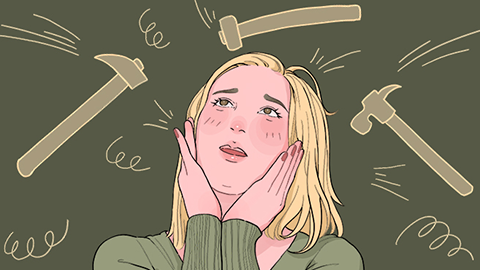How to Determine Whether Shortness of Breath is Caused by Psychological Factors
To determine whether dyspnea (shortness of breath) is caused by psychological factors, one can generally observe whether symptoms occur during emotional fluctuations, whether they are accompanied by psychological manifestations, whether they are related to specific scenarios, whether medical examinations reveal no organic lesions, and whether symptoms are relieved through psychological regulation. If abnormalities are present, timely medical consultation is recommended. Detailed analysis is as follows:

1. Whether symptoms occur during emotional fluctuations: Dyspnea caused by psychological factors often suddenly occurs during intense emotions such as tension, anxiety, or fear. If dyspnea occurs regardless of emotional state, both during emotional stability and fluctuations, it may not be caused by psychological factors.
2. Whether accompanied by psychological manifestations: Dyspnea caused by psychological factors is often accompanied by physical symptoms induced by psychological stress, such as palpitations, sweating, numbness in hands and feet, or a sense of impending doom. If dyspnea occurs without other psychological symptoms, other causes should be considered.
3. Whether related to specific scenarios: Dyspnea triggered by psychological factors may be associated with specific situations, such as public speaking or being alone in a closed space—environments that easily induce psychological stress. If the severity of dyspnea does not significantly differ across various scenarios, it may not be related to psychological factors.
4. Whether medical examinations reveal no organic lesions: If multiple tests, including chest examination and cardiopulmonary function tests, do not detect any abnormalities in organs such as the heart or lungs, yet dyspnea persists, it may be related to psychological factors. If medical tests reveal clear organic lesions, the cause is more likely to be organic.
5. Whether symptoms are relieved through psychological regulation: If symptoms of dyspnea are significantly reduced or disappear after psychological regulation techniques such as deep breathing or relaxation training, they may be related to psychological factors. If psychological regulation shows no significant improvement, further investigation into other causes is necessary.
When experiencing dyspnea, pay attention to the above-mentioned associated features and try to relieve symptoms by calming emotions and adjusting breathing patterns. If symptoms recur frequently or significantly affect daily life, timely medical consultation is advised to first rule out organic diseases, and then seek help from mental health professionals as needed.









